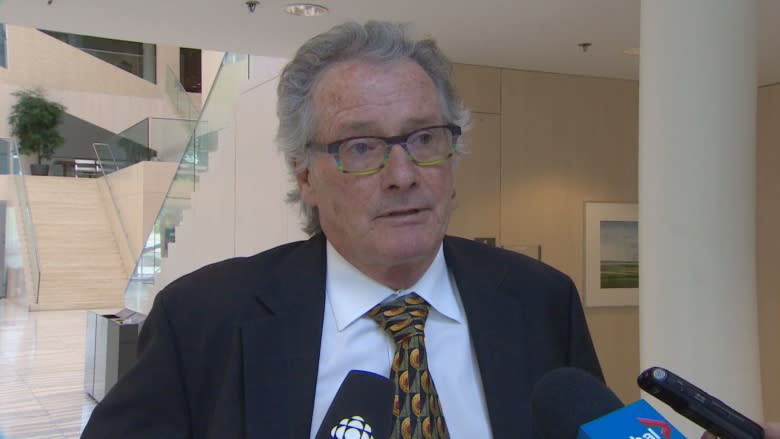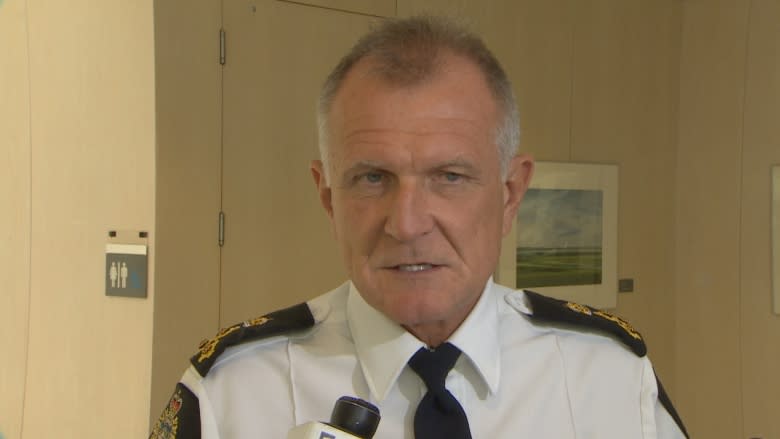Edmonton judges to launch mental health court to ease case backlog
Two judges are creating a mental health court in Edmonton in response to the growing number of mental health-related calls received by police.
The mental health court will hear cases beginning this fall at Edmonton's provincial courthouse and will use a collaborative approach between Crown prosecutors, psychiatrists and supportive housing agencies.
The model in Edmonton would be based on mental health courts in Toronto, according to Assistant Chief Judge Larry Anderson.
Toronto's mental health courts draw on a combination of these resources, including judges, prosecutors, duty counsels, psychiatrists and court officers with mental health training.
The Edmonton mental health court will also include services to take the mental health of the alleged offender into account when setting bail conditions, a program other mental health courts don't currently offer, Anderson said.
The point of the service will be to "stabilize complainants and get them reintegrated into society," he added.
Mental health 'very visible' in court system
"We realized that we really needed to do something different if we wanted to tackle the underlying issues with mental health," Anderson said at a meeting of the Edmonton Police Commission Thursday.
Provincial court judge Renée Cochard said mental health problems are "very visible" in Alberta's court system.
"They're released from their remand, given a bus ticket and that's it," she said.
Edmonton police Chief Rod Knecht said approximately 25-30 per cent of all Edmonton police calls are mental health-related.
Cases 'overcrowding' provincial court
Part of the concern is an overcrowding of the court system, Anderson said. The provincial court hears roughly 150 cases every day, he added.
Anderson said they are not anticipating any new costs from this program because existing resources will be reshuffled within the legal system.
Knecht described the creation of a mental health court as a "no-brainer" for the city.
"A lot of these people are just falling through the cracks or they're arrested or sent back out into the community," he said. "I really applaud the judiciary for taking this on."
Anderson said the mental health court should be in place by the fall.
anna.desmarais@cbc.ca
@anna_desmarais


